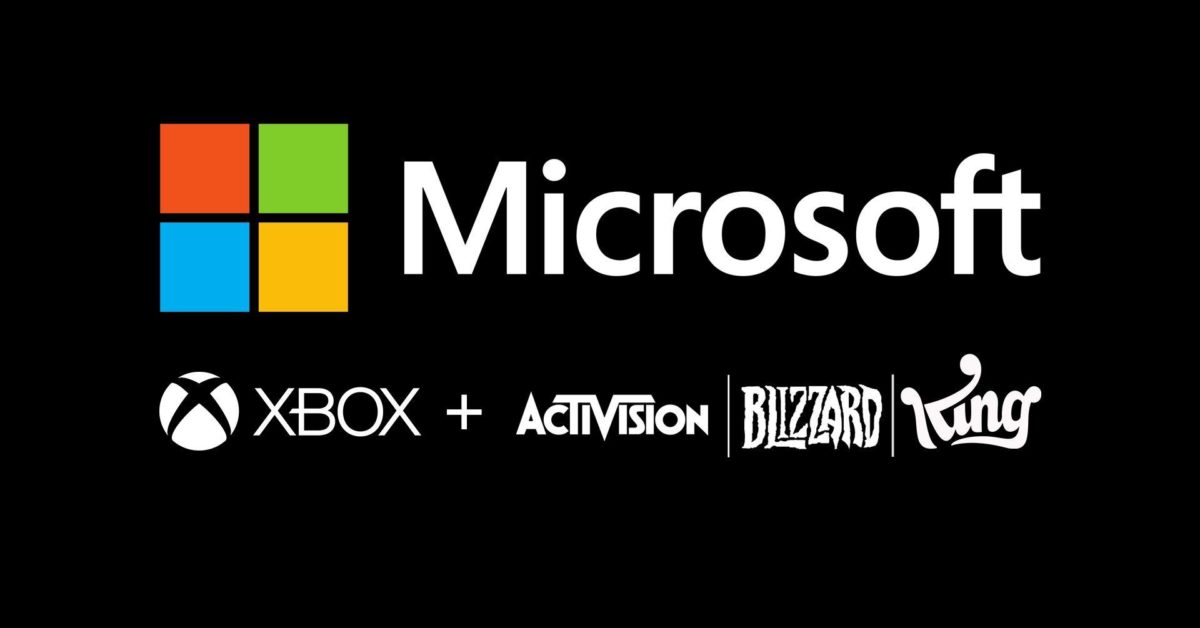Microsoft-Activision Merger: FTC's Appeal Challenges Antitrust Ruling

Table of Contents
The FTC's Case Against the Merger
The FTC's opposition to the Microsoft-Activision merger centers on concerns about reduced competition and the potential for anti-competitive practices.
Concerns Regarding Competition in the Gaming Market
The FTC argues that the merger will significantly reduce competition across various gaming sectors:
- Console Gaming: Microsoft's acquisition of Activision Blizzard, and its flagship titles like Call of Duty, could stifle competition in the console market, potentially giving Xbox an unfair advantage over PlayStation and Nintendo.
- PC Gaming: The FTC also worries about the impact on PC gaming, where Activision Blizzard titles hold significant market share. The merger could lead to less choice and higher prices for PC gamers.
- Cloud Gaming: The rapidly growing cloud gaming market is another area of concern. Microsoft's Game Pass subscription service, combined with Activision Blizzard's extensive catalog, could create an insurmountable barrier to entry for competitors.
The FTC further points to the potential for Microsoft to engage in anti-competitive practices, such as making popular Activision Blizzard titles exclusive to Xbox consoles and its Game Pass service. This strategy, the FTC argues, could harm rivals and ultimately hurt consumers.
The Role of Call of Duty
Call of Duty is the central figure in the FTC's argument. This immensely popular franchise generates billions in revenue annually and is a key driver of console sales. The FTC fears that Microsoft might make Call of Duty exclusive to Xbox, severely impacting PlayStation's competitiveness and potentially driving players towards Xbox. The loss of such a major title would significantly damage Sony’s market position.
Evidence Presented by the FTC
The FTC's case rests on a combination of economic models, market analysis, and internal documents. They have presented evidence suggesting that the merger would substantially lessen competition, harming consumers through higher prices, reduced innovation, and less choice. However, the strength of this evidence is debated, with Microsoft contesting several key findings.
Microsoft's Defense of the Merger
Microsoft strongly refutes the FTC's claims, arguing that the merger will benefit consumers and increase competition.
Arguments Against Antitrust Concerns
Microsoft counters the FTC's concerns by emphasizing its commitment to keeping Call of Duty available on PlayStation and other platforms. They've made public commitments to ensure continued access to the franchise for years to come, aiming to address the FTC's primary concern. They have presented evidence to support these claims, including proposed contracts with Sony and other platform holders.
Microsoft's Stance on Competition
Microsoft argues that the gaming market is dynamic and competitive, with numerous players and diverse platforms. They contend that the merger will actually enhance innovation and choice for consumers by expanding their Game Pass library and potentially improving existing Activision Blizzard games.
Legal Strategy and Future Plans
Microsoft's legal strategy involves presenting extensive evidence to counter the FTC's claims, focusing on its commitments to maintain cross-platform access to key titles and emphasizing the benefits of the merger for gamers. The outcome of this case will likely set a significant precedent for future mergers and acquisitions in the tech industry.
Potential Outcomes and Implications
The FTC's appeal process involves several stages, and the timeline for a final decision remains uncertain.
The Appeal Process and Timeline
The appeal will involve legal briefs, potentially oral arguments, and a final ruling from the appellate court. This process could take months, even years, to complete.
Impact on the Gaming Industry
Regardless of the outcome, this case will significantly impact the gaming industry. The debate over exclusivity, competition, and the definition of market power will have long-lasting consequences for game developers, publishers, and consumers. Smaller studios could find it harder to compete if larger mergers like this are consistently challenged.
Precedent for Future Mergers
This case will set a crucial precedent for future mergers and acquisitions in the tech industry, particularly in the gaming sector. The outcome will influence how regulators approach future deals involving major players in the video game market.
Conclusion: Microsoft-Activision Merger: The FTC's Appeal and its Ramifications
The FTC's appeal against the Microsoft-Activision merger represents a significant challenge to the initial approval. The FTC's concerns regarding reduced competition, particularly regarding Call of Duty's exclusivity, are countered by Microsoft's commitment to cross-platform availability and its arguments about the overall benefits to consumers. The outcome will have far-reaching consequences for the gaming industry, antitrust law, and the future of large-scale tech mergers. To stay informed about the ongoing developments in the Microsoft-Activision merger case and its implications for the future of gaming, follow reputable news sources covering technology and antitrust law. The unfolding of this case will define the landscape of the gaming industry for years to come.

Featured Posts
-
 Navigating The Private Credit Job Market 5 Dos And Don Ts
May 30, 2025
Navigating The Private Credit Job Market 5 Dos And Don Ts
May 30, 2025 -
 Watch Z Cars Your Guide To Streaming The Series On Talking Pictures Tv
May 30, 2025
Watch Z Cars Your Guide To Streaming The Series On Talking Pictures Tv
May 30, 2025 -
 Emma Raducanu Advances To Miami Open Quarterfinals
May 30, 2025
Emma Raducanu Advances To Miami Open Quarterfinals
May 30, 2025 -
 Djokovic And Sinners French Open Showdown A Step By Step Analysis
May 30, 2025
Djokovic And Sinners French Open Showdown A Step By Step Analysis
May 30, 2025 -
 Epidemiya Kori V Mongolii Vyzov Dlya Sistemy Zdravookhraneniya
May 30, 2025
Epidemiya Kori V Mongolii Vyzov Dlya Sistemy Zdravookhraneniya
May 30, 2025
